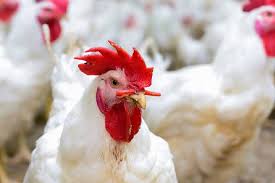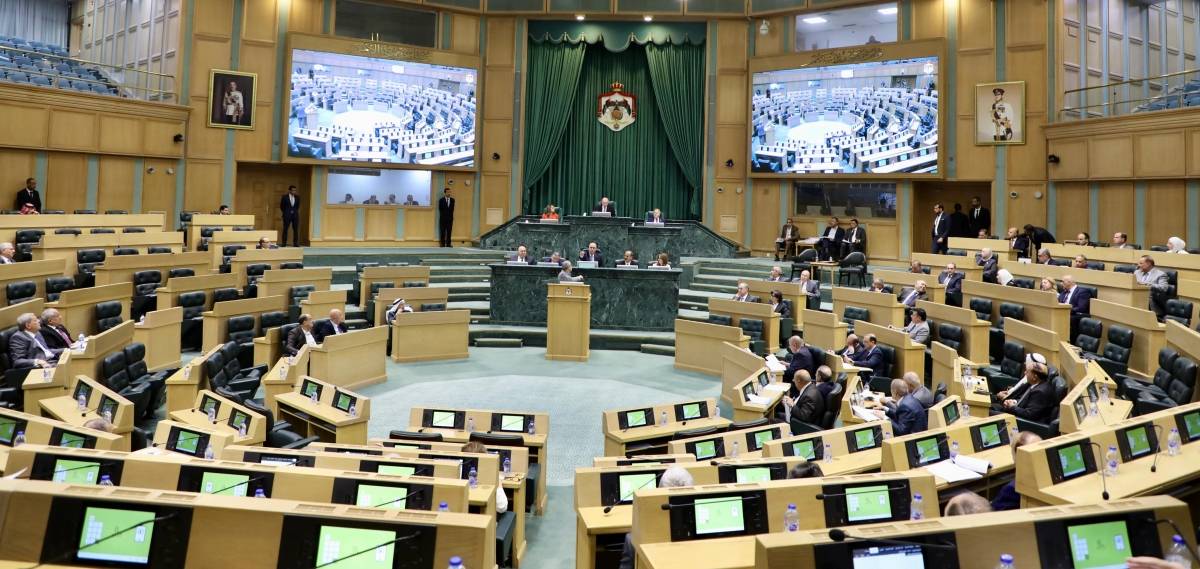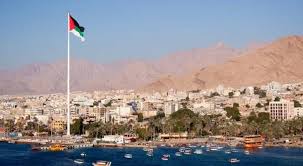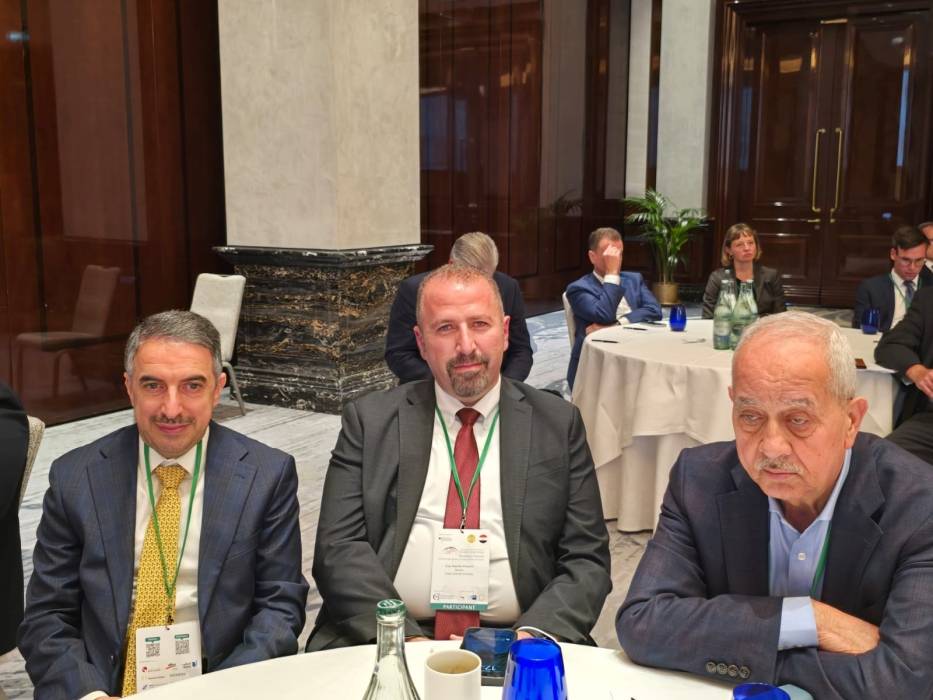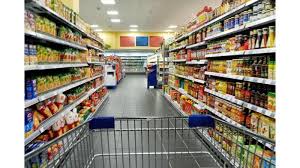What is the extent of the link between inflation rates and high prices of food commodities?

الأنباط -
Al - Anbat - Zeina - Al - Barbour
Translated by - Neveen - Al - Jarrah
Many have wondered about the extent of the correlation between inflation rates and the rise in the prices of food commodities, as many merchants invoke inflation to constantly increase prices and create chaos in the markets on this subject. Dr. Nimr Badwan explained to "Al-Anbat" that there is a historical inverse relationship between commodity prices And ration commodities, interest rates and inflation, and this is due to the fact that interest rates, inflation rates and raw material prices are closely related because it is the cost of holding inventory.
And he indicated that when interest rates rise due to an increase in the rate of inflation, commodity prices tend to decrease, and vice versa, that is, when interest rates and the inflation rate decrease, commodities tend to rise in prices, and this occurs in an environment with a low interest rate, adding that the cost of financing inventories and food commodities is lower. than it is when interest rates are high, so you should think about a business that manufactures a product that requires metals or energy, pointing out that it is cheaper to store the long-term requirements for the commodities needed in manufacturing when the cost of money is low "carrying cost” indicating that it is a term used by consumers of commodities ( and producers) to describe the costs associated with holding inventories for a period.
He stressed that if history is a guide, the rise in interest rates and inflation rates in the United States and around the world will be a negative factor for commodity prices, and when prices increase the cost of carrying, inventories will increase, and this will encourage consumers of raw materials to buy commodities on the basis of need instead of keeping stocks due to The high cost of financing, noting that this is what history has taught us and still tends to repeat itself when it comes to economic cycles.
Badwan mentioned that in the aftermath of the 2008 global financial crisis, central banks around the world cut interest rates to unprecedented levels, and these monetary authorities used a tool called quantitative easing that allowed them to buy back sovereign debt instruments, and in some cases corporate bonds.
He predicted a decline in commodity prices in the event that interest rates began to rise and inflation rates increased from the current low levels, stressing that there are no guarantees because the reaction of raw materials markets will depend on whether they rise due to inflationary pressures due to many years of facilitative policies in the United States and around the world. In addition, commodity markets are global, because people all over the world are consumers of raw materials, while the policy of the Central Bank of Europe and Japan led these countries to lower short-term interest rates to negative territory in order to fight high inflation rates in the world in general, However, economic conditions remain weak.
Badwan believed that negative rates will prolong the need for cautious policy initiatives in neighboring countries, so it is necessary for the US central bank to consider the monetary policies of neighboring countries due to international trade and other factors.
He added that often the world's central banks coordinate policy to achieve the best results for the overall global economy, which is in the interest of all countries.
Badwan concluded his speech that from 2008 AD until 2016, global policy was pessimistic when it came to monetary policy, and growth remained elusive, and this means that the chances of a continued rise in the prices of food commodities are the historically low interest rates that continue, and yet he stressed that there will come a time when banks have to Centralization in which it works to increase interest rates, and thus will increase the prices of food commodities in the whole world, and the main possible reason for the rise in interest rates and prices of food commodities is the increase in inflation rates.
In the same context about the link between inflation rates and the rise in prices of food commodities, the economist Hossam Ayesh started his speech to "Al - Anbat" with a sentence. The rule is that he wants more revenue and compensation for what he lost, or he believes that the opportunity is ripe for achieving more of it.
He explained that high inflation rates create a different situation of price hikes that become difficult to control even in the case of markets based on high commercial standards, pointing out that every trader wants to compensate for what he thinks he is losing as a result of the high production inputs for him or the high costs on him due to the resulting high prices. about inflation.
Ayesh continued that the increase in other additional costs, such as energy, taxes, fees, and the cost of workers, has a direct role in influencing prices, and the possibility exists for there to be exploitation of ration commodities in particular, attributing this to low income rates and the consumption of the largest percentage of it in food and drink, and therefore the demand for it will be high regardless of the high Prices or not, referring to the inability of the consumer to dispense with the supply commodities, especially since the alternatives to these commodities are either not available continuously or their prices are comparable to the prices of good commodities that the consumer used to buy despite their feeling that they are being exploited by merchants.
Ayesh added that the second problem with regard to the relationship between the consumer and the seller or merchant is the intermediate links between the two parties, which we may not see directly, but they exist and cause an increase in melasma prices, indicating that these links are more present in some areas than in other areas, which in turn causes discrepancies in The prices of commodities of the same type in a particular region over others, pointing out that in some cases there are some imported commodities whose prices are cheaper than similar local commodities, and the reason is due to the intermediate links mentioned above.
He mentioned that the role of the oversight and inspection teams, whether affiliated to the Municipality, the Ministry, or other institutions concerned with that, whether on quality, price, or the method of preserving food supplies, may be different between regions and commercial stores.
He attributed this problem related to inflation and prices also to the absence of a bulletin that sets prices, despite the existence of a binding general agreement that prices reflect the quality of the sold commodity, the way it is presented, the place from which it is offered, and its usefulness, stressing the need for prices to be consistent with income anywhere in the world.
Ayesh stressed that in all cases there must be a form of organization and that people should be aware and knowledgeable about how whether the merchant raises prices or not, indicating that the most important element is to be more cultured with regard to consumption and the way to deal with cases of exploitation that occur in some cases. times.
He concluded that there is a law to prevent monopoly and competition, but the laws remain ineffective in the event that there are no means to activate them, such as the citizen being able to monitor violations and report them in addition to responding quickly to complaints, pointing out that the most important thing is to take the measures guaranteed by the law to prevent consumer exploitation.










